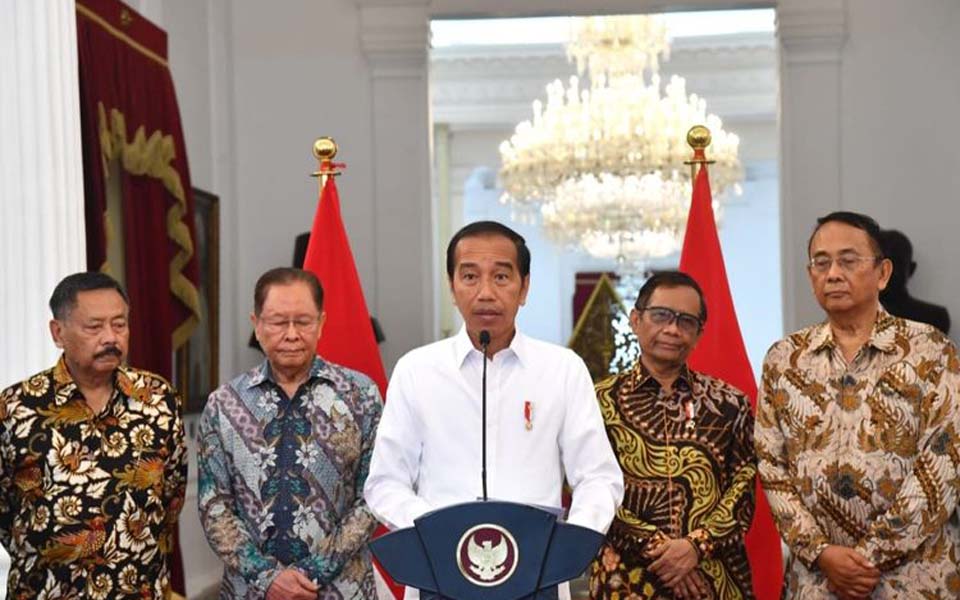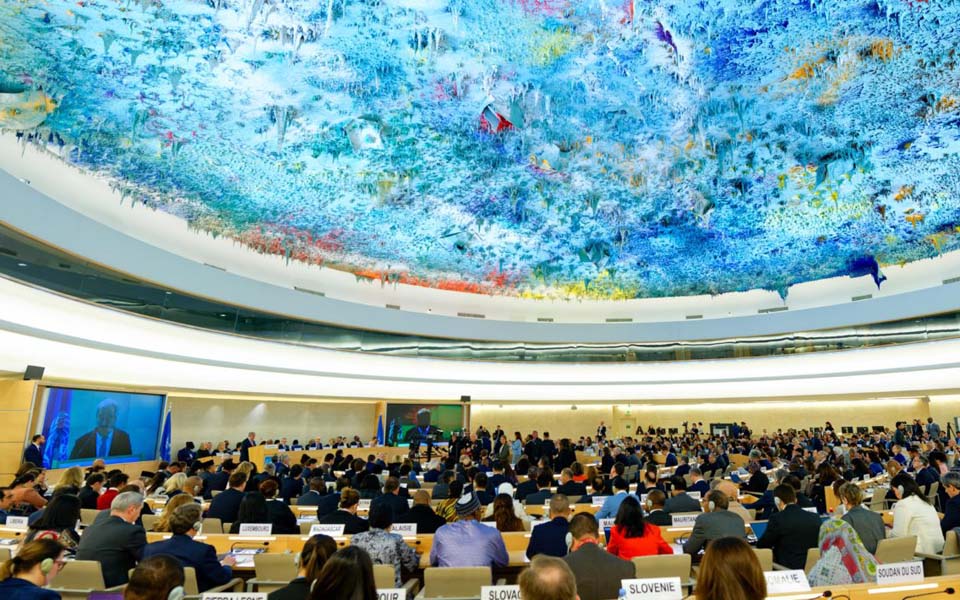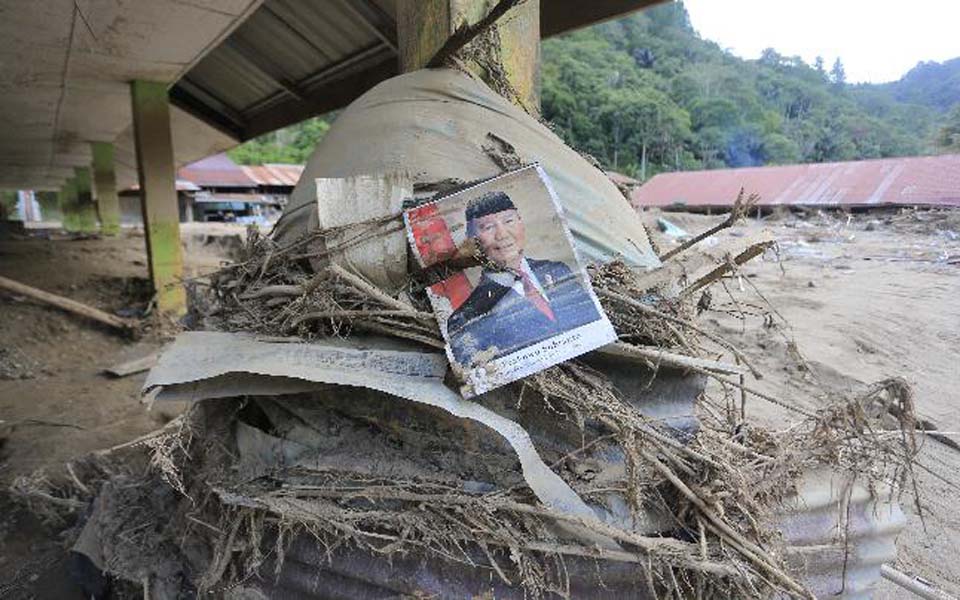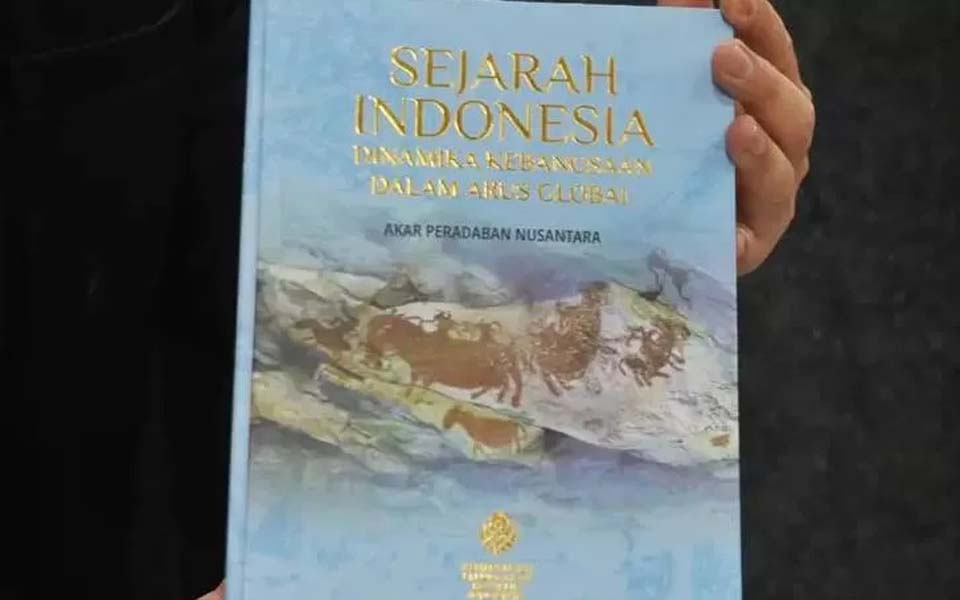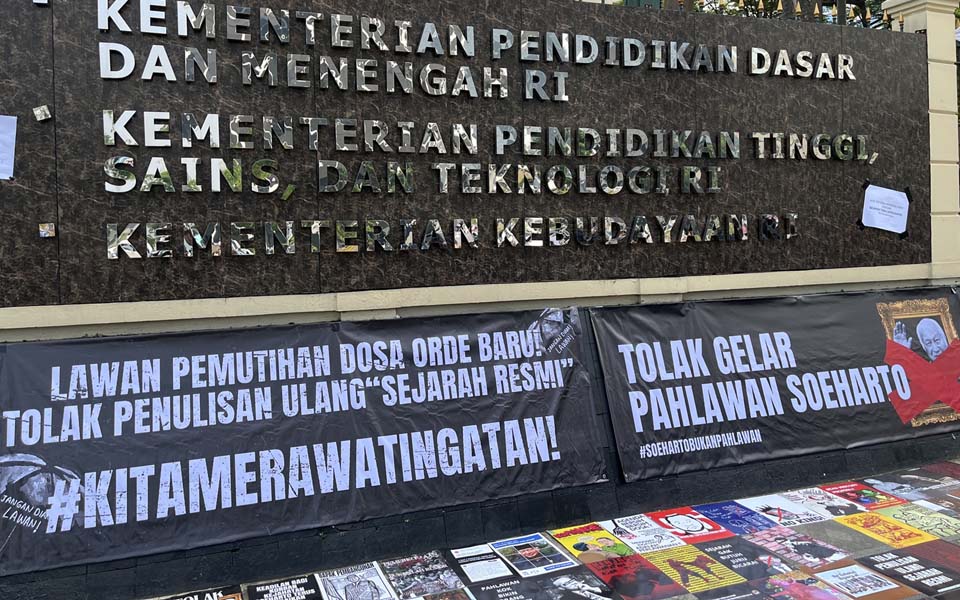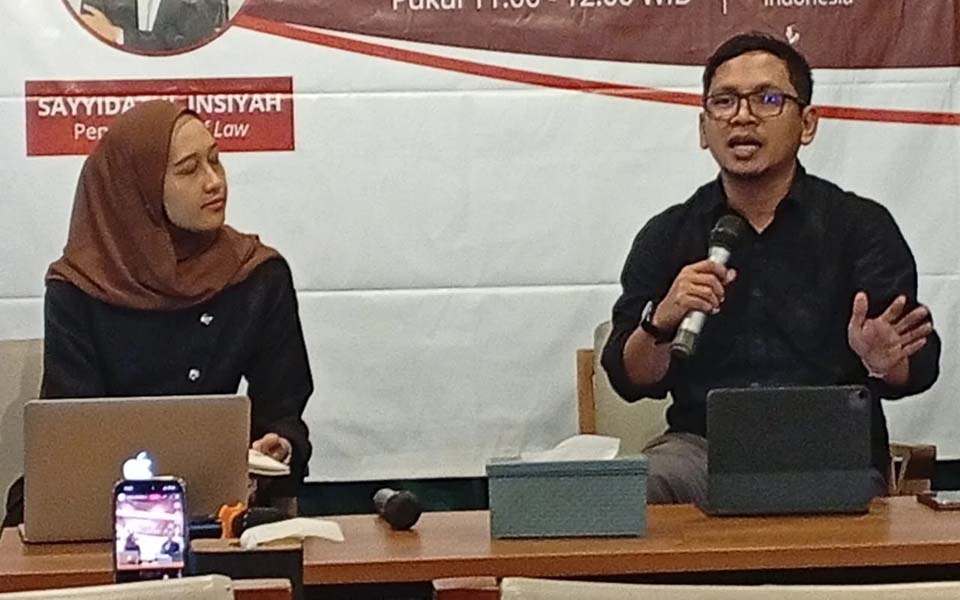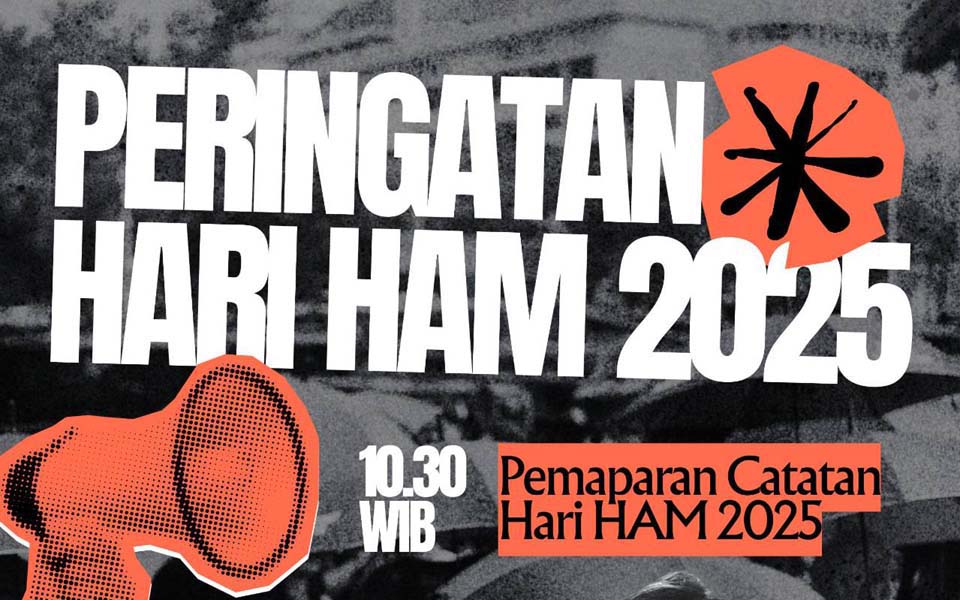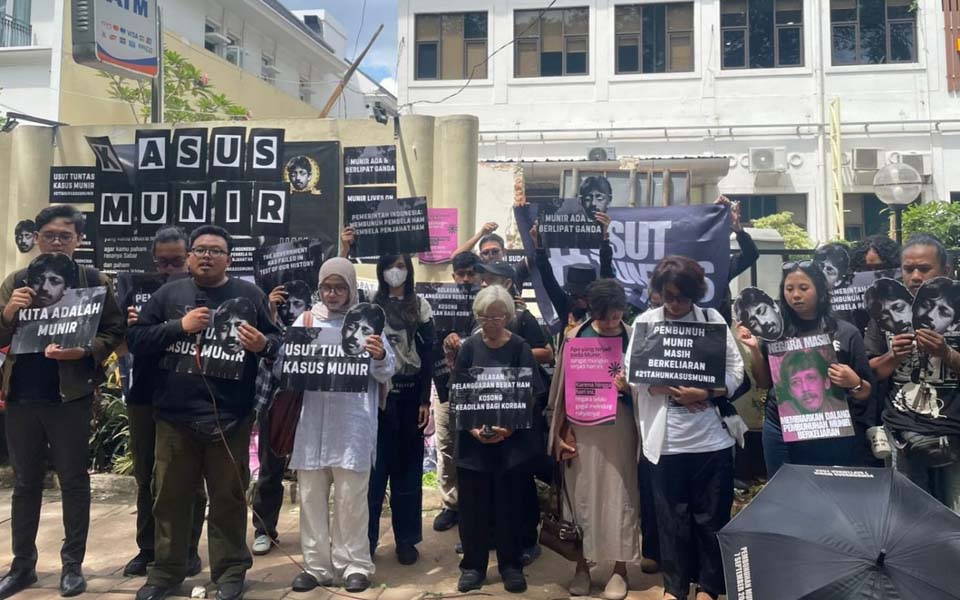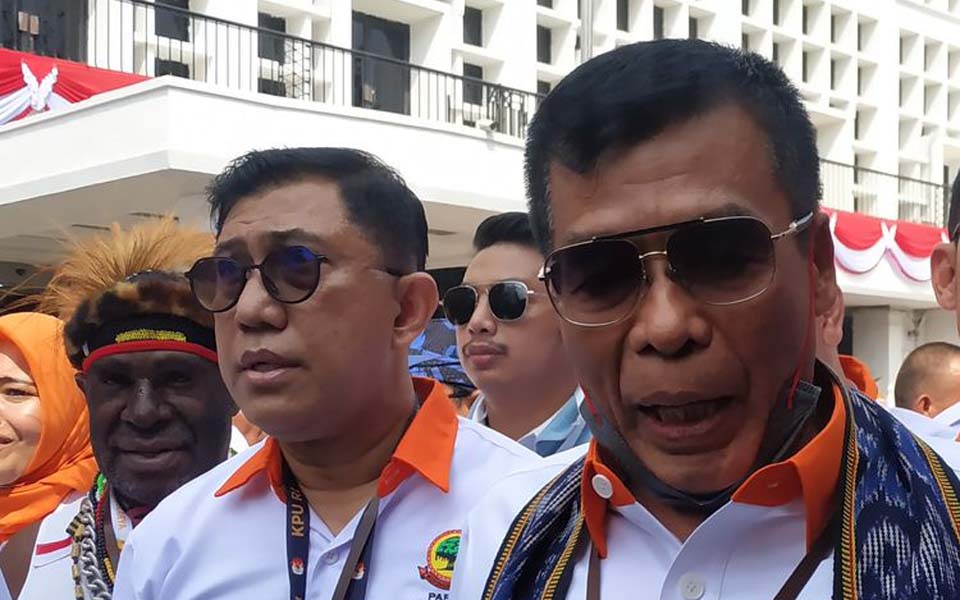[The following is an abridged translation of a statement by the United Socialists (Perserikatan Sosialis, PS) in response to Indonesian President Joko "Jokowi" Widodo's January 11 public statement in which he officially acknowledged that gross human rights violations have taken place in Indonesia and expressed his regret over these incidents.]
Dipo Negoro – On Wednesday January 11 at the State Palace in Jakarta, the Team for the Non-Judicial Resolution of Past Gross Human Rights Violations (PPHAM), represented by Coordinating Minister for Security, Politics and Legal Affairs Mahfud MD, conveyed its report to President Joko "Jokowi" Widodo, followed by a statement by the president.
Widodo declared that he acknowledged that gross human rights violations had indeed occurred in Indonesia and that he deeply regrets these incidents. He then mentioned 12 such cases:
1. The 1965-1966 mass killings
2. The Mysterious Shootings (petrus) in 1982-1985
3. The Talangsari incident in Lampung, 1989
4. The Geudong House and Sattis Post incidents in Aceh, 1989
5. The forced disappearances of activists in 1997-1998
6. The May 1998 riots in Jakarta
7. The Trisakti and Semanggi I-II incidents in 1998-1999
8. The murder of shamans in 1998-1999
9. The Simpang KKA incident in Aceh, 1999
10. The Wasior incident in Papua, 2001-2002
11. The Wamena incident in Papua, 2003
12. The Jambo Keupok incident in Aceh, 2003
In his statement Widodo said "... acknowledge that gross human rights violations did indeed occur..." and "... deeply regret the occurrence of incidents of gross human rights violations...".
By choosing the words "occurred" rather than "carried out" or "committed by", it was implied that it was as if these violations just happened all by themselves. There was no focus on the perpetrators, let alone the motives, modus or the benefits gained by the perpetrators of these crimes. These 12 cases alone involved scores of military generals and government officials – some of whom are now dead – but many of whom are still alive and living filthy rich lives to this day.
Some of these violations are the responsibility of former president Suharto who is now dead. Aside from Suharto, also during that era is the late Benny Moerdani who once held the post of ABRI (armed forces, now called TNI) chief and Commander for the Restoration of Security and Order (Pangkopkamtib). Former TNI chief Wiranto, Defense Minister Prabowo Subianto and former State Intelligence Chief (BIN) chief AM Hendropriyono – who are still alive – were of course also involved. In addition to this there are names like Endriartono Sutarto, Dibyo Widodo, Hamami Nata, Sjafrie Sjamsoeddin and Timur Pradopo.
In several of the case cited by Widodo, military and police institutional structures were involved. The National Human Rights Commission (Komnas HAM) has even said that in the case of the Geudong House and Strategic and Tactical Unit or Sattis post cases in Aceh, all of the commanders of ABRI, the Army's Special Forces (Kopassus) and the Army's Strategic Reserves Command (Kostrad, Green Berets) during that period should be held accountable.
The Geudong House or Sattis Post occurred when Aceh was declared a Military Operations Area (DOM) between 1989 and 1998. A number of well known names were involved in these operations including Agum Gumelar, Subagyo HS, Muchdi PR, Wismoyo Arismunandar, Johny Lumintang, Djamari Chaniago, Try Sutrisno, Edi Sudradjat and Feisal Tanjung. Also included of course is Wiranto and Prabowo. The involvement of military commanders, as well as police and military officers, went right down to the Regional Military Command (Kodam), the Regional Police (Polda), the Sub-Regional Military Commands (Korem), the District Military Commands (Kodim), the Sub-District Military Commands (Koramil), the Sectoral Police (Polsek) and even at the detachment level. This is similar to Komnas HAM's conclusions in the Simpang KKA and Jambo Keupok cases in Aceh, as well as the Wamena and Wasior massacres in Papua.
The president's January 11 statement could also be used to stymie or at least make things difficult for their potential rivals in the 2024 legislative and presidential elections or those seeking other government positions, as well as attract support from perspective voters who adhere to the lesser evil view, or voting for the least mudharat (something or someone that brings nothing good and only causes trouble) or on the basis that at least the candidate is not a human rights violator.
When Widodo first ran for president in the 2014 elections, wearing a checkered shirt he stated that he would find People's Democratic Party (PRD) activists and street poet Wiji Thukul, who was disappeared along with other pro-democracy activists in 1997-98 under orders from then Special Forces (Kopassus) commander Prabowo. "Yes, find him so it's clear, Mbak [Sister] Pon [Sipon, Thukul's wife] is a good friend, her children are good friends", pledged Widodo.
Now, eight years later, and a week after Thukul's wife Sipon's death, Thukul has still not been found. What we do find is Wiranto and Prabowo eating together and working in the same government with Widodo. Even if Widodo and Prabowo completed with each other or bickered during the last two presidential elections, their hostility was only a game or at least secondary. The ordinary people were pitted against each other by making them think that voting for Widodo was better than voting for Prabowo. And in the end it turned out just like the popular slogan during the 2019 elections: Vote (Number 1) for one (Widodo and vice presidential running mate Ma'ruf Amin) and get two (Prabowo and vice presidential running mate Sandiaga Uno), after Prabowo joined Widodo's cabinet as Defense Minister.
Right from the start the impression that Widodo was pro-democracy or would uphold human rights was just an illusion. Widodo allied himself with and gave many government posts – and even awards – to people left over from former president Suharto's New Order regime, militarists and human rights violators. The majority of political parties in the so-called Great Indonesia Coalition (Koalisi Indonesia Hebat) that was built to ensure Widodo's victory in 2014 were parties that came out of splits from Suharto's ruling party Golkar.
These parties were the National Democrat Party (Nasdem) led by Surya Paloh, the People's Conscience Party (Hanura) led by Wiranto and the Indonesian Justice and Unity Party (PKPI) led by Sutiyoso (who was implicated in the murder of the Balibo Five in East Timor). People who previously held powerful positions during the New Order regime were also found in Widodo's ruling Indonesian Democratic Party of Struggle (PDI-P). His vice presidential candidate in 2014, Jusuf Kalla, is a senior Golkar Party official. He is also remembered from a scene in Joshua Oppenheimer's award winning film The Act of Killing or Jagal in which he gave a speech at a Pancasila Youth (PP) event saying that Indonesia needs thugs (preman). Jagal shows the PP's involvement in the 1965 mass killings. The Golkar Party originated from a grouping of mass organisations put together by the military (particularly the Army) to block Indonesia's leftist founding president Sukarno and his supporters. Golkar along with the military backed the authoritarian Suharto regime that remained in power for 32 years.
Wiranto is currently the chairperson of the Presidential Advisory Board, Prabowo is the Minister of Defense and Hendropriyono – who according to leaked US diplomatic cables was involved in the 2004 assassination of renewed human rights defender Munir – is a long-time supporter of Widodo, who has given several of his family members position of power. His son, Diaz Faisal Malik Hendropriyono is a special presidential staff member while his son-in-law Andika Perkasa is the commander of the TNI. Then two members of the Rose Team (Tim Mawar) who were responsible for the forced disappearances of pro-democracy activists in 1997-98 were recruited as senior officials at the Defense Ministry. Similar rewards have been given to human rights criminals not directly involved in the 12 cases cited by Widodo. Widodo gave a Star of Service award to former East Timorese militia leader Eurico Guterres, who was indicted by the UN in 2003 for crimes against humanity. Meanwhile Ryamizard Ryacudu, who declared that the killers of West Papuan independence leader Theys Eluay were "heroes", was given the post of Defense Minister before Prabowo.
Although Widodo stated that he would endeavour that gross human rights violations do not happen again, including the hope that that the acknowledgement will strengthen "our national harmony in the Unitary State of the Republic of Indonesia (NKRI)", the fact is that many rights abuses have been committed in the name of NKRI, including the slogan "NKRI is non-negotiable", and these violations have been widespread under Widodo's watch.
Right abuses will also continue to be committed and even the methods repeated if the generals who have violated human rights remain free and are never tried or sentenced in court. In fact they are still filthy rich, powerful and hold government posts precisely because of the crimes they have committed. they will therefore use the same methods to stay in power. Massacres, kidnappings, robbery, sexual violence and other rights abuses to facilitate continued repression, as they did in 1965, methods that were later replicated in the violations in East Timor, West Papua, Aceh and other parts of Indonesia.
Moreover Suharto's counter-revolution in 1965, which later became known as the "Jakarta Method", became a platform for imperialism and reactionary forces to overthrow people's movements in Asia as well as Latin America. All of the human rights violations that took place (and the number is more than the 12 acknowledged by Widodo) followed the same pattern. If in the past, in order to facilitate the 1965 catastrophe the reactionary groups used newspapers to spread fake news such as the Army's newspapers Berita Yudha and the Armed Forces, now there are buzzers and celebrities ready to use social media to support anything that the political elite asks for (for a certain fee of course).
The pattern of instigating riots, fermenting racism, playing people off against each other, in the interests of exploitation, continues to be something that can be relied upon. We saw this in 1965, the May 1998 riots in Jakarta, the Semanggi and Trisakti student shootings in 1997-98 and the 2017 Jakarta gubernatorial elections.
Moreover it has already become a habit on the part of the political elite to rely on religion, anti-communism and more recently campaigns against the Lesbian, Gay, Bisexual and Transgender (LGBT) community to win elections. It is also common for the political elite, both at the local as well as national level, along with the police and military, to use reactionary civilian militia groups (who act in the name of "local people", "indigenous populations" or "the public") to attack protest actions, discussions or other events organised by the ordinary people.
Quite correctly, human rights activists have cast doubt upon or are worried about president Widodo's statement, or say that Widodo will never resolve past violations if he continues to involve human rights criminals in his administration. This conclusion however requires a deeper understanding and doing more than just recommending that the political elite "should do this" or "should do that".
First, the problem of the political interests of a group is not a matter of individual human rights violators or who is in power. Whether it be Widodo, Prabowo, Wiranto, likely presidential candidates such as Ganjar Pranowo or Anies Baswedan, the PDI-P, Prabowo's Gerindra Party, Golkar or the so-called parliamentary opposition parties like the Justice and Prosperity Party (PKS) or the Democrat Party, they are all part of the same interest group, namely the political elite. They have interests that are different from or even contradict the interests of workers or the ordinary people. The power of the political elite is maintained by the exploitation and oppression of workers and the ordinary people. "National harmony" will never be built as long as the political elite are in power. Moreover the national harmony referred to by people like Widodo actually means the ordinary people and workers remaining silent and obedient as they are exploited by the capitalist state of the Republic of Indonesia.
They may well fight it out when contesting an election – Prabowo fought it out with Widodo in the 2014 and 2019 presidential elections. Yet in the end Prabowo became Widodo's defense minister. Just look at the various kinds of policies that they enact. They all supported the neo-liberal Omnibus Law on Job Creation, the anti-democratic Criminal Code (KUHP), last year's fuel price hikes, low wages, contract labour, outsourcing, exploitative apprenticeships and so forth. What about the Law on Sexual Violence Crimes (TPKS) that was passed last year? Of course they supported it. Even the bourgeois are unwilling to have women and children suffer sexual violence. The only difference between them on the law were that the PDI-P camp and their kind wanted to criminalise sex outside of marriage and LGBT people through the KUHP, while the PKS and their kind wanted to criminalise it through the TPKS Law. They will all agree to any policies that oppress workers and the ordinary people, at least when they are in power. When out of power, then can pretend to oppose them like the PKS and the Democrats.
If the problem is that they are all the same, then the second conclusion is that the problems we face at the moment are because those in power are the political elite, that and nothing else. For over six decades since the 1965 catastrophe, Indonesia has been ruled by various generals, business tycoons, bureaucrats or government officials, or their families. The individuals keep changing but the regime remains essentially intact. Criticism of the political elite through discussions, seminars, people's forums and even actions, strikes, and so on, is a good thing. But as long as workers and the people do not hold power, then it will go no further than hoping that the political elite will change their ways. The workers and the people need to seize power, and that will require a political force, a revolutionary political party. Revolutionary! Not just an alternative or different or something new compared to the parties of the political elite.
One of the things we can expect from "revolutionary" is bringing human rights criminals to justice. The trials of human rights criminals serves to erode and then eliminate the pattern of power of the political elite. The more elite power is pushed aside, the more opportunities will open up to build democracy and prosperity. A Democracy that will not criminalise workers and the ordinary people if they are critical or struggle, which does not use teargas, batons or live bullets when the ordinary people become political. A democracy that that instead demands the fullest possible participation of workers and the ordinary people in this power. Including power to build prosperity, that does not make it easy to sack workers, condemn them to contract labour until they die, that does not see development as seizing farmers' land, which does not see investment as maintaining low wages. All of us can build a new kind of power, a power that is just and civilized for all workers and people.
-- Dipo Negoro is a leading member of the Socialist Union
[Abridged translation by James Balowski. The original title of the article was "Tangkap, Adili, dan Penjarakan Penjahat HAM untuk Indonesia yang Adil dan Beradab!".]





